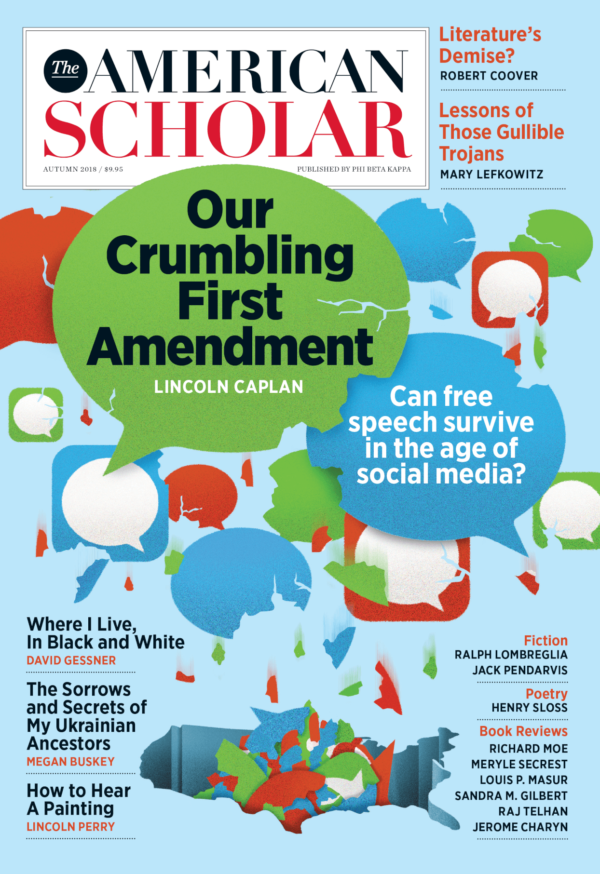
Lincoln Caplan offers American Scholar readers a fascinating examination of the challenges linked to free-speech protection in the age of social media.
In the past few years, the techno-optimism that justified social media’s special legal protection has turned to techno-pessimism. The material that social media offer is often riveting and addictive, but it is increasingly repellent and dangerous. Zeynep Tufekci, an associate professor at the University of North Carolina, compares people’s susceptibility to “glimmers of novelty, messages of affirmation and belonging, and messages of outrage” to the human appetite for “salt, sugar, and fat.” That’s what social media offer, she wrote, “whether it’s a breaking news story, a saccharine animal video, an anti-Semitic meme, or a clever advertisement for razors.”
Social media companies are evangelists for open communication, human connection, and their own part in facilitating both goals, but their business, largely, is brokering ads. As Tufekci explains, “they sell the capacity to precisely target our eyeballs.” They do that by mining data about users to match their interests with information that gets pushed to them, to maximize their time and attention on a site. Because “posts are targeted and delivered privately, screen by screen by screen,” she writes, the “public sphere has been fragmented and submerged.”
In the 20th century, when relatively few people controlled the media, the challenge for a speaker was getting access and opportunity to speak. In the 21st century, most Americans have access to a platform and thus plenty of opportunity. The challenge is for speakers to get listeners to pay attention, to keep their messages from being buried by an avalanche of content, no matter how benign.
It’s much worse when that competing content is malignant. To drown out a viewpoint on social media, bad actors create distraction, disinformation, and demoralization, and they disseminate fake news (including the invention of terrible crimes—called atrocity propaganda), destroy reputations, and regularly make death threats. Some of the most potent attacks happen in the dark, when armies of trolls send private messages so that their targets don’t know who is attacking them.


